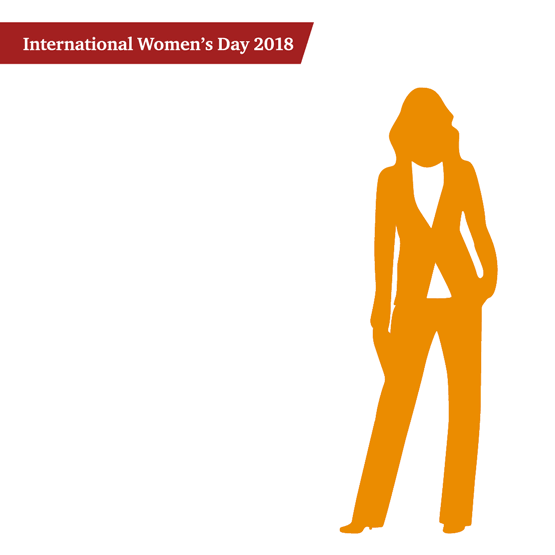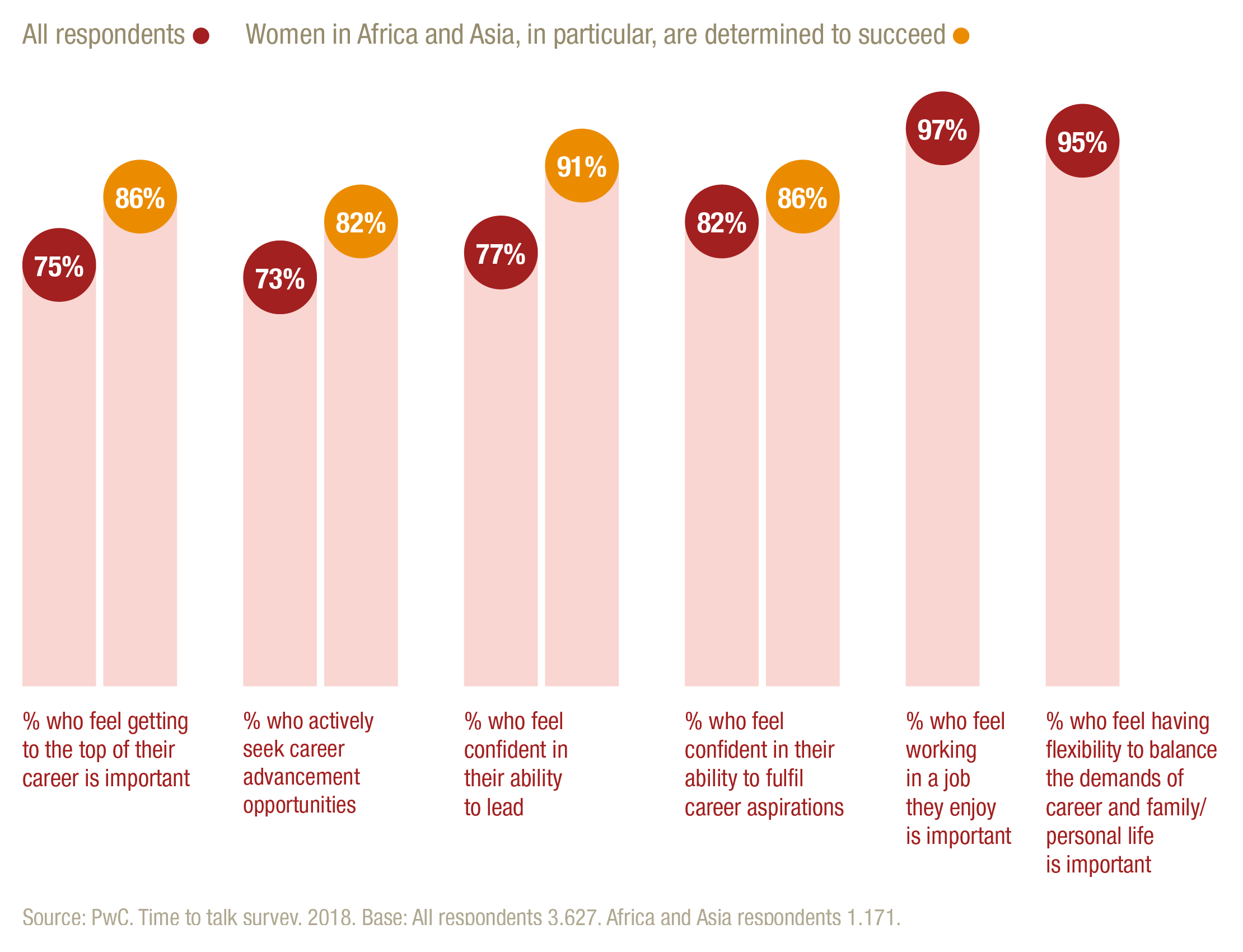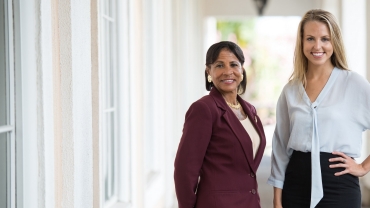

Highlights
Our 2018 survey of 3,627 professional women from around the world tells this story of determination, hope and frustration. But it also gives a clear indication of three key essential elements that business leaders must focus on to advance gender equality and help women’s career advancement as they lead their enterprises into the 21st century.
- Transparency and trust matter. A lot.
- Support networks and advocacy go a long way. Women need strategic support.
- Challenges with balancing life, family care and work. There are grave concerns regarding flexibility and motherhood penalties.
Women are determined to succeed professionally while remaining true to their priorities
The respondents in our survey are aged 28 to 40. They are at the point in their working lives where the gap between men’s and women’s progression begins to widen dramatically and the challenges of combining careers and personal priorities increase. They live around the world and work in a variety of cultures. Some live in places where many women work; others are regarded as members of a minority simply because they have roles outside the home. They work in all sectors of industry, from education and healthcare, which traditionally employ many women, to aerospace and technology, which typically do not. These respondents represent the enormous amount of female talent in the global workforce, forthright and ambitious for success on their terms. Women are more confident and ambitious and eager for career progression and success. Women in the emerging economies, we found, have even higher levels of confidence. Their high aspirations are a reason for hope.


“Women are confident, ambitious and actively pursuing their career goals. Leaders should focus on creating an environment where women – and men – can have open conversations, and where there is clarity on what it takes to progress. This will benefit everyone and will lead to better results overall. This greater transparency is however just one piece of the puzzle, additional actions are needed to drive change. It must go hand in hand with efforts to mitigate any unconscious biases and gender stereotypes that have traditionally impacted career success and progression in workplaces around the world.”












